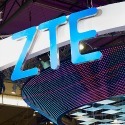A UK warning that ZTE could pose a security risk in service provider networks comes at the same time US authorities ban the sale of components by US firms to the Chinese vendor.

UK government authorities have taken a leaf out of the US rulebook and warned the country's telcos off using equipment and services from Chinese vendor ZTE.
Following a report in the UK's Financial Times newspaper on Monday, the UK's National Cyber Security Centre (NCSC) published a brief statement on its website describing ZTE Corp. (Shenzhen: 000063; Hong Kong: 0763) as a potential threat to UK national security.
"It is entirely appropriate and part of NCSC's duty to highlight potential risks to the UK's national security and provide advice based on our technical expertise," said Ian Levy, the NCSC's technical director. "NCSC assess that the national security risks arising from the use of ZTE equipment or services within the context of the existing UK telecommunications infrastructure cannot be mitigated."
ZTE was already prohibited from selling equipment and services to the largest US operators. In 2012, a US government report named both ZTE and larger Chinese rival Huawei as potential security risks and warned US operators with government contracts off using the Chinese vendors in their networks.
The warning from the UK's NCSC deals another blow to ZTE's international reputation, which has already taken a hit this week, as US authorities have banned the sale of US components to ZTE for a seven-year period. An original export ban on ZTE was lifted in March 2017, after the company paid an $892 million fine for breaching sanctions on Iran, but the US Commerce Department now claims ZTE has issued misleading and false statements about making improvements to its business. (See US Govt. Bans Domestic Component Sales to ZTE and China's ZTE Comes Off US Trade Blacklist.)
Earlier today, ZTE said it would halt trading on the Hong Kong Stock Exchange "pending the release of an inside information announcement in respect of the activation of a denial order by the Bureau of Industry and Security of the United States Department of Commerce."
All this comes just as ZTE's financial performance was improving.
Having suffered a loss of 767.8 million Chinese yuan ($122 million) in 2016, ZTE bounced back with a net profit of more than RMB6.7 billion ($1.1 billion) last year, with sales up 7.5%, to RMB108.8 billion ($17.3 billion). (See ZTE Bounces Back in Q1 After US Trade Fine.)
Although it trails bigger rivals Ericsson AB (Nasdaq: ERIC), Huawei Technologies Co. Ltd. and Nokia Corp. (NYSE: NOK) in the UK market, ZTE has been able to land deals with some important European operators in the past couple of years. It is well regarded for its expertise across a number of technologies including network functions virtualization, which has become a priority for many service providers.
For all the latest news from the wireless networking and services sector, check out our dedicated Mobile content channel here on Light Reading.
But amid protectionist moves by US authorities, conditions have grown even tougher for ZTE and Huawei this year. In January, Texas Congressman Mike Conaway proposed legislation that would prevent US authorities from buying any product or service from the Chinese companies. The legislation could stop Huawei and ZTE from selling gear, including networks and consumer devices, to operators that fulfill government contracts. (See Huawei, ZTE Face US Federal Ban.)
In the same month, Huawei failed to secure a major smartphone distribution deal with US telecom giant AT&T Inc. (NYSE: T). According to a report from Reuters at the time, security concerns were raised during the negotiations between Huawei and AT&T. (See Huawei Still Knocking on US Door – but AT&T Deal Thwarted.)
Many critics are skeptical the Chinese government is using Huawei and ZTE to spy on other countries, and say that US authorities' real agenda is protectionism. US President Donald Trump has already imposed tariffs on Chinese imports in recent weeks, and there is growing concern that China is racing ahead of the US in the all-important technology sector. (See Trade Warmonger Trump May Slap Tariffs on Chinese Tech – Reuters.)
According to just-published research from analyst firm Analysys Mason, China today holds a narrow lead over South Korea and the US when it comes to overall readiness for 5G, a next-generation mobile technology that could provide a spur to economic growth.
"Today's research highlights the importance of policymaker action in 2018 to reform local zoning rules and unlock access to mid-band spectrum as part of a broader spectrum pipeline plan," said Meredith Atwell Baker, the president and CEO of the CTIA, a US telecom industry association, in expressing concern about the findings. "I'm optimistic we will leapfrog China because key leaders in the administration, on Capitol Hill and at the FCC [Federal Communications Commission] are focused on the reforms needed to win the race."
The latest UK moves against ZTE may fuel Chinese concern that Huawei is also in the NCSC's crosshairs. In the US, authorities appear to have made little distinction between the two vendors when discussing the potential security threat, and Huawei has a much bigger presence than ZTE in the UK market.
In the US, the FCC is today set to vote on whether smaller operators using Huawei's equipment are entitled to continue receiving US subsidies, according to a report from the New York Times.
— Iain Morris, News Editor, Light Reading
About the Author(s)
You May Also Like











